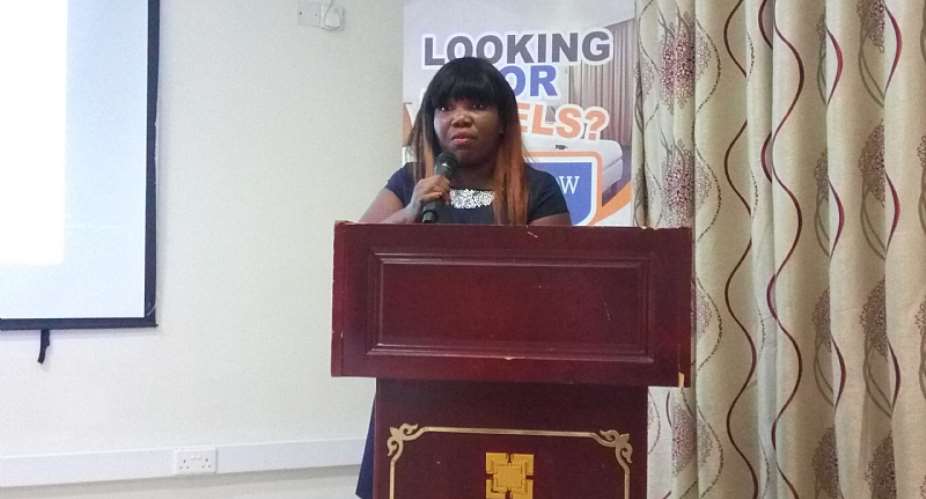Despite tourism’s contribution to Africa’s GDP was 7.8% (USD 165.6bn) in 2016, and is expected to rise to 7.9% of GDP to USD 170.5bn 2017, has however been predicted to grow by 4.6% pa to reach USD 268.2bn by 2027, according to Hospitality Report Africa 2017.
Meanwhile, according to an African survey conducted in 2016, the major issues regarding travelling in the African continent are cost, visa restriction, travel booking and flight connection.
The report noted that the major challenge facing African tourism is terrorism adding that a spate of terrorist attacks has plagued some countries since 2015, with adverse impacts on the performance of the tourism sector.
The affected countries cited include Kenya, Tunisia, Mali, Burkina Faso, Côte d’Ivoire, Egypt and Nigeria.
The report which was compiled by Accor hotels and Jumia Travel stated that while Africa has seen great milestones in the development of Infrastructures, major challenges still abound in advancing transport systems (road, rail, and airports) as well as power/electricity supplies.
Speaking at the launch of the Hospitality Report Africa 2017, the country Manager of Jumia Travel Ghana, Omolara Adagunodo said they as a result of this major challenges, has introduced ‘Democratized Travelling Campaign’ to make travelling free and at a very subsidised cost.
She noted that her outfit has bundled together a complete package for tourists which cost as low as GHS48 which includes a decent hotel accommodation, pool and a Wireless Fidelity (WI-FI).
The new Country Manager emphasised that apart from visibility they have put out a 50percent off on hotel bookings to make travelling very interesting and affordable.
Omolara Adagunodo added that apart from the extranet which is also tool to assist hoteliers to manage their hotel bookings and pricing mechanisms appropriately, they have introduced ‘Travel Smart’ which is a special loyalty and discount price for clients.
The country Manager of Jumia Travel Ghana stressed that the region is expected to attract 64 M international tourist arrivals in 2017, as compared to 58 M in 2016 (+ 8% vs 2015), and 110 M by 2027 which means we have a responsibility to adequately prepare for the challenges that comes with the increasing numbers.
Africa Hospitality Outlook
According to the Hospitality Report Africa 2017, in 2016, domestic travel spending generated 63.7% of Africa’s Tourism GDP, and is expected to rise by 2.8% in 2017 to USD 73 billion, and then by 3.6% pa to USD 104 billion in 2027.
On the other hand, foreign visitor spending stood at 36.3% in 2016 (USD 40.7 billion), and is expected to grow by 5.3% in 2017 to USD 42.9bn, and then by 5.9% pa to USD 76.0bn in 2027.
The top 5 destinations for international arrivals in 2015 were Morocco (more than 10 million), Egypt (9.1 M), South Africa (8.9 M), Tunisia (5.36 M) and Zimbabwe (2.06 M). Major Business Destinations included Johannesburg, Lagos, Nairobi, Abidjan, Accra, and Cairo.
Destinations with strongest growth in international arrivals in 2016 were Zimbabwe, Mauritius, Ghana, Sudan, and Seychelles
The leading source market for international arrivals in 2016 was Europe with 47.3%, while Asia Pacific was the fastest growing market with an increase of +21.7% (mostly from china.
In 2016, most of the top 10 African destinations saw positive year-end performance after rebounding from the effects of the Ebola outbreak. However, Nigeria and Ethiopia lacked international visitors with a decrease of 4 % and 0.8% respectively.
A total of 365 hotel chain development pipelines were reported in Africa in 2016, with 64,231 rooms. This is a 29% increase, from the 2015.
Nigeria and Angola have the highest number of hotel chains, with 61 and 56 hotels respectively; accounting for almost 30% of the total pipelines. There are 20% more signed rooms in 2016 than 2015.
In terms of cities, Lagos takes the lead by number of planned rooms with 4,000, while Nairobi takes the 4th position with 2,666 planned rooms in the African pipeline.





 Election 2024: Ghanaians will vote to erase Akufo-Addo’s horrifying legacy – Nii...
Election 2024: Ghanaians will vote to erase Akufo-Addo’s horrifying legacy – Nii...
 BP killed ex-Weija-Gbawe MCE – Tina Mensah reveals
BP killed ex-Weija-Gbawe MCE – Tina Mensah reveals
 Limited voter registration exercise: NDC slams EC over mass technical challenges
Limited voter registration exercise: NDC slams EC over mass technical challenges
 UK, America will one day come to Ghana to borrow Akufo-Addo to be their presiden...
UK, America will one day come to Ghana to borrow Akufo-Addo to be their presiden...
 EOCO returns fire at OSP over Cecilia Abena Dapaah’s money laundering case
EOCO returns fire at OSP over Cecilia Abena Dapaah’s money laundering case
 Anti-corruption endeavours must be rooted in systems, investigations and prosecu...
Anti-corruption endeavours must be rooted in systems, investigations and prosecu...
 We’ve not introduced 1% cybersecurity levy on banking transactions – BoG
We’ve not introduced 1% cybersecurity levy on banking transactions – BoG
 EU hits out at sidelining of Chad election observers
EU hits out at sidelining of Chad election observers
 ‘Be calm; we’re having engagements on new fee implementation’ — KNUST SRC assure...
‘Be calm; we’re having engagements on new fee implementation’ — KNUST SRC assure...
 Bawumia is compassionate, unique politician without corruption tag — Miracles Ab...
Bawumia is compassionate, unique politician without corruption tag — Miracles Ab...
